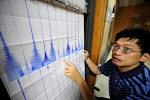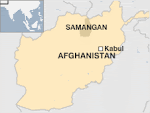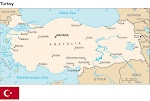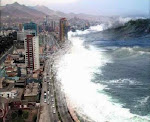 XINHUA, China-Chinese leaders moved to contain the political aftershocks of last week's deadly earthquake, promising a big rebuilding fund, reining in the recently aggressive media and trying to keep despair from turning to anger in the disaster zone.Still living under makeshift shelters of scrap wood and nylon tarps on Wednesday—10 days after the quake—70 farmers in the mountain town of Xinhua pressed against the locked gate of the local government compound, demanding tents. Ten soldiers in camouflage guarded the fortress-like compound."The government said they would deliver more tents last night. But we never got them.It rained last night and it looks like it will rain again tonight," said one farmer in his 50s who only gave his surname, Zhou. His family of five, including his 80-year-old mother, was living in a rickety lean-to.Although Beijing has mounted an energetic military mobilization in response to a quake that has left an estimated 50,000 dead and 5 million homeless across Sichuan province, the immense challenge means help is not arriving fast enough.Mindful of the problem and the growing discontent, Premier Wen Jiabao announced a $10 billion reconstruction fund and ordered all agencies to cut spending by 5 percent to free up already budgeted money, state media reported. Wen also called a halt to new state building projects.In the sprawling quake zone, more schools reopened in the fairly orderly and teeming tented refugee camps in some of the larger towns and cities. The government evacuated more of the injured from strapped hospitals on specially outfitted trains staffed by doctors, with 242 patients leaving the city of Jiangyou for the southwestern provincial capital of Kunming.Only one rescue was reported—that of 35-year-old Cui Changhui trapped for 216 hours in a water diversion tunnel at a hydropower plant construction site. In a further sign of dwindling hopes, rescue work had all but ceased in the obliterated town of Beichuan and workers poured disinfectant over the site, perhaps in preparation, one rescue worker said, for demolition. For much of the past two days, authorities have kept the media away from Beichuan.The confirmed death toll from the earthquake rose to 41,353 and another 32,666 remained missing, said a spokesman for the Cabinet.In the last day of a three-day national mourning period, the communist government was also reverting to well-tested methods to impose its authority.A message of unity in the face of adversity was prominent in state media and on the streets of the hard-hit city of Shifang. Huge billboards stood in the shopping district in the center of the city, showing pictures of the quake's damage, including collapsed buildings and injured people. A huge slogan read: "Everyone come together with one heart."In nearby Xinhua, a community of farmhouses and low-rise apartment blocks, a dozen soldiers milled around the protesting crowd of farmers, while others guarded the government office.State-run media, which conducted unusually probing reporting in the first days after the May 12 quake, shifted to a more positive tone. Deng Yaping, four-time Olympic gold medalist in table tennis and a national hero, was shown on state TV talking to children in the city of Mianyang, where many refugees had been taken from nearby mountains."This is the traditional way of doing things for the Communist Party's propaganda department. They always try to use the information to legitimize the government, and don't try to reflect, summarize experiences or prevent disasters from happening again," said Li Datong, the ousted editor of a once-thoughtful weekly supplement to the China Youth Daily newspaper.With the torch relay for the Beijing Olympics set to resume Thursday after its mourning-period hiatus, the government appeared set on getting the country back on track for the Aug. 8-24 games. No mention was made whether the government's spending cuts would affect the Olympics, although most construction is already finished.A need for a tighter grip and a stronger government response is especially urgent in the smaller, rural communities of quake-shattered Sichuan. Distrust of local officials seen as corrupt and indifferent is already high in such areas across China, causing protests to soar in the past decade.Families in at least two towns where schools collapsed and killed their children have protested or threatened to take local officials to court, suspecting shoddy construction.Their cries amplified by state media under the freer constraints last week touched off a national outcry over chronic underfunding of schools, poor construction and corruption. Newspapers ran reports saying seismologists previously predicted a massive quake in Sichuan and raised questions whether the government failed to warn people. Web sites ran comments accusing local officials of taking relief supplies for their relatives first.Such suspicions were evident in Xinhua. "I've been waiting here for two hours for a tent and the government hasn't told us anything. The local government has really been useless," said a woman surnamed Chen who refused to give her name because she was afraid of government harassment.No government officials turned up to talk with the farmers, who mixed their anger at the officials with praise for the soldiers.Shop owner Li Bai alleged local officials needed to be bribed to get anything done. But he also said President Hu Jintao, who toured the disaster zone over the weekend, and other central government leaders were capable of getting things done."After Hu Jintao came here, they finally started taking this disaster seriously," he said. "The central government just doesn't know how corrupt the officials are here. They just need to come more often to see it for themselves."In a sign its aware of such complaints, a report Wednesday on the Web site of the State Council, the Cabinet, threatened officials with punishment if they misused relief funds or supplies.At the same time, the government signaled it wanted state media to heed Beijing's orders and not stir up public passions. A notice on the Web site of the State Administration of Radio, Film and Television—a media regulator—said media should "gather their minds and resources around the directives from the central government and ... cover the disaster rescue and relief efforts with a high sense of political responsibility.""Maybe the criticism will harm the rebuilding effort because the local people's mindsets are already unstable," said Shao Peiren, a mass media professor at Zhejiang University in Hangzhou. "So responsible media should see the bigger picture."
XINHUA, China-Chinese leaders moved to contain the political aftershocks of last week's deadly earthquake, promising a big rebuilding fund, reining in the recently aggressive media and trying to keep despair from turning to anger in the disaster zone.Still living under makeshift shelters of scrap wood and nylon tarps on Wednesday—10 days after the quake—70 farmers in the mountain town of Xinhua pressed against the locked gate of the local government compound, demanding tents. Ten soldiers in camouflage guarded the fortress-like compound."The government said they would deliver more tents last night. But we never got them.It rained last night and it looks like it will rain again tonight," said one farmer in his 50s who only gave his surname, Zhou. His family of five, including his 80-year-old mother, was living in a rickety lean-to.Although Beijing has mounted an energetic military mobilization in response to a quake that has left an estimated 50,000 dead and 5 million homeless across Sichuan province, the immense challenge means help is not arriving fast enough.Mindful of the problem and the growing discontent, Premier Wen Jiabao announced a $10 billion reconstruction fund and ordered all agencies to cut spending by 5 percent to free up already budgeted money, state media reported. Wen also called a halt to new state building projects.In the sprawling quake zone, more schools reopened in the fairly orderly and teeming tented refugee camps in some of the larger towns and cities. The government evacuated more of the injured from strapped hospitals on specially outfitted trains staffed by doctors, with 242 patients leaving the city of Jiangyou for the southwestern provincial capital of Kunming.Only one rescue was reported—that of 35-year-old Cui Changhui trapped for 216 hours in a water diversion tunnel at a hydropower plant construction site. In a further sign of dwindling hopes, rescue work had all but ceased in the obliterated town of Beichuan and workers poured disinfectant over the site, perhaps in preparation, one rescue worker said, for demolition. For much of the past two days, authorities have kept the media away from Beichuan.The confirmed death toll from the earthquake rose to 41,353 and another 32,666 remained missing, said a spokesman for the Cabinet.In the last day of a three-day national mourning period, the communist government was also reverting to well-tested methods to impose its authority.A message of unity in the face of adversity was prominent in state media and on the streets of the hard-hit city of Shifang. Huge billboards stood in the shopping district in the center of the city, showing pictures of the quake's damage, including collapsed buildings and injured people. A huge slogan read: "Everyone come together with one heart."In nearby Xinhua, a community of farmhouses and low-rise apartment blocks, a dozen soldiers milled around the protesting crowd of farmers, while others guarded the government office.State-run media, which conducted unusually probing reporting in the first days after the May 12 quake, shifted to a more positive tone. Deng Yaping, four-time Olympic gold medalist in table tennis and a national hero, was shown on state TV talking to children in the city of Mianyang, where many refugees had been taken from nearby mountains."This is the traditional way of doing things for the Communist Party's propaganda department. They always try to use the information to legitimize the government, and don't try to reflect, summarize experiences or prevent disasters from happening again," said Li Datong, the ousted editor of a once-thoughtful weekly supplement to the China Youth Daily newspaper.With the torch relay for the Beijing Olympics set to resume Thursday after its mourning-period hiatus, the government appeared set on getting the country back on track for the Aug. 8-24 games. No mention was made whether the government's spending cuts would affect the Olympics, although most construction is already finished.A need for a tighter grip and a stronger government response is especially urgent in the smaller, rural communities of quake-shattered Sichuan. Distrust of local officials seen as corrupt and indifferent is already high in such areas across China, causing protests to soar in the past decade.Families in at least two towns where schools collapsed and killed their children have protested or threatened to take local officials to court, suspecting shoddy construction.Their cries amplified by state media under the freer constraints last week touched off a national outcry over chronic underfunding of schools, poor construction and corruption. Newspapers ran reports saying seismologists previously predicted a massive quake in Sichuan and raised questions whether the government failed to warn people. Web sites ran comments accusing local officials of taking relief supplies for their relatives first.Such suspicions were evident in Xinhua. "I've been waiting here for two hours for a tent and the government hasn't told us anything. The local government has really been useless," said a woman surnamed Chen who refused to give her name because she was afraid of government harassment.No government officials turned up to talk with the farmers, who mixed their anger at the officials with praise for the soldiers.Shop owner Li Bai alleged local officials needed to be bribed to get anything done. But he also said President Hu Jintao, who toured the disaster zone over the weekend, and other central government leaders were capable of getting things done."After Hu Jintao came here, they finally started taking this disaster seriously," he said. "The central government just doesn't know how corrupt the officials are here. They just need to come more often to see it for themselves."In a sign its aware of such complaints, a report Wednesday on the Web site of the State Council, the Cabinet, threatened officials with punishment if they misused relief funds or supplies.At the same time, the government signaled it wanted state media to heed Beijing's orders and not stir up public passions. A notice on the Web site of the State Administration of Radio, Film and Television—a media regulator—said media should "gather their minds and resources around the directives from the central government and ... cover the disaster rescue and relief efforts with a high sense of political responsibility.""Maybe the criticism will harm the rebuilding effort because the local people's mindsets are already unstable," said Shao Peiren, a mass media professor at Zhejiang University in Hangzhou. "So responsible media should see the bigger picture."http://www.breitbart.com/article.php?id=D90Q7RR00&show_article=1&catnum=0
As in the days of Noah...



















.jpg)


.bmp)
No comments:
Post a Comment